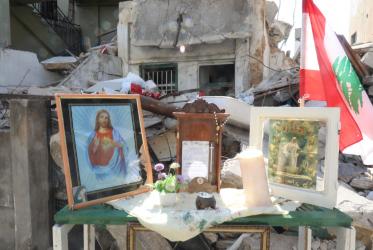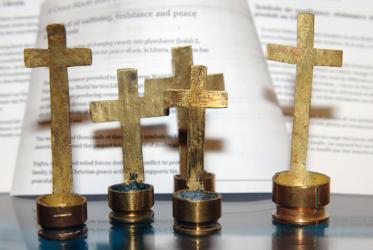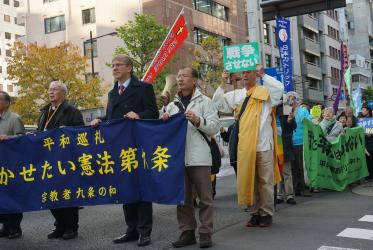Displaying 261 - 280 of 323
12 June 2015
Killer Robots? Moral questions pervade UN conference
23 April 2015
Religious leaders urge a ban on fully autonomous weapons
02 April 2015
The new Arms Trade Treaty: a life-saving gift this Christmas
19 December 2014
WCC extends sympathies to Peshawar victims
17 December 2014
Momentum builds for ban on nuclear weapons
16 December 2014
Pilgrimage of justice and peace gives vision for WCC programmes
22 November 2014
WCC condemns the killing of Christian couple in Pakistan
11 November 2014
Churches in Pacific strengthen ecumenical collaboration
11 November 2014
WCC general secretary congratulates Nobel laureates
10 October 2014










